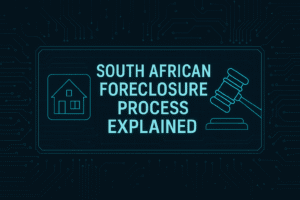Table of Contents
Exploring Reverse Mortgage Alternatives in South Africa
As the population of South Africa ages, the financial needs of retirees are becoming increasingly complex. Many older adults are looking for ways to supplement their retirement income, with reverse mortgages being one popular option. However, a reverse mortgage might not be the best fit for everyone, and there are various alternatives available. This blog post delves into the options available for South Africans seeking financial security during their retirement years.
Understanding Reverse Mortgages
Before we explore the alternatives, it’s essential to understand what a reverse mortgage is. A reverse mortgage allows homeowners, typically aged 55 and older, to borrow against the equity in their property without having to sell it. The loan is repaid when the homeowner sells the home, moves out, or passes away.
While reverse mortgages can provide much-needed cash flow, they come with certain drawbacks, including high fees, the potential for a reduced inheritance, and the risk of foreclosure if the homeowner fails to meet the loan conditions.
Alternatives to Reverse Mortgages
1. Home Equity Loans and Home Equity Lines of Credit (HELOC)
One of the most straightforward alternatives to a reverse mortgage is a home equity loan or a HELOC. These options allow homeowners to tap into their property’s equity while retaining ownership.
Home Equity Loan: This is a one-time loan where the borrower receives a lump sum based on the equity in the home. It usually has a fixed interest rate and is repaid in monthly installments.
HELOC: A HELOC works more like a credit card, allowing homeowners to borrow against their equity as needed. It typically has a variable interest rate and offers more flexibility, but it can also lead to debt accumulation if not managed carefully.
2. Downsizing
For many retirees, downsizing can be a practical solution. Selling a larger family home and moving to a smaller, more manageable space can free up cash that can be reinvested for retirement needs. This approach not only reduces mortgage payments but also lowers maintenance costs, property taxes, and utility bills.
3. Renting Out a Room or Property
Another alternative is to generate income by renting out a portion of the home. This could be a spare room, a basement suite, or even an entire secondary property. Platforms like Airbnb have made it easier than ever to find short-term renters, providing a flexible income source that can help cover living expenses.
4. Annuities
An annuity is a financial product that provides a steady income stream in exchange for a lump sum investment. For retirees looking for predictability and security in their finances, annuities can be an attractive option. They can be structured to provide income for a specific period or for the rest of the retiree’s life.
5. Pension Income
For those who have contributed to a pension fund, this income can be a reliable source of financial support during retirement. It’s essential to understand the terms of the pension plan, including payout options and tax implications.
6. Government Grants and Benefits
South African retirees may be eligible for various government grants and benefits, including the Old Age Grant and Disability Grant. It’s worth exploring eligibility for these programs, as they can provide a much-needed financial cushion.
7. Investment Income
Smart investing can provide a steady income stream during retirement. Retirees may consider investing in dividend-yielding stocks, bonds, or property (real estate investment trusts). However, it’s essential to consult a financial advisor to ensure that investment choices align with risk tolerance and retirement goals.
8. Family Support
Sometimes, the best solution is to lean on family support. In South Africa, it is not uncommon for adult children to assist their aging parents financially. Open discussions about financial needs can lead to family-arranged solutions that help alleviate financial stress.
9. Financial Counseling
Seeking advice from a financial advisor or counselor can help retirees explore all available options tailored to their unique financial situations. Professional guidance can clarify the implications of various choices and help retirees make informed decisions.
Conclusion
While reverse mortgages can be a viable option for some retirees in South Africa, they are not the only solution. Exploring alternatives such as home equity loans, downsizing, renting out property, annuities, and various government benefits can provide retirees with the financial security they need without the risks associated with reverse mortgages.
Ultimately, the best choice will depend on individual circumstances, preferences, and financial goals. By considering these alternatives, South African retirees can ensure they maintain their quality of life and achieve peace of mind in their golden years.
What Makes Us Different from the Industry Approach?
At Real Estate Assist, we take a unique approach to helping South African homeowners unlock the equity in their properties without resorting to traditional methods like reverse mortgages. Unlike conventional lenders, we focus on innovative and tailored solutions that align with your long-term financial goals while minimizing risks. Our approach is designed to empower you to achieve financial freedom without sacrificing your property or incurring the high fees and potential pitfalls associated with reverse mortgages.
For those exploring options, our Reverse Mortgage Alternatives in South Africa page offers a comprehensive look at various strategies to secure your retirement. Additionally, if you’re looking to retain your property while unlocking its value, check out our Equity Release Solutions for more information on how we can help you achieve your financial goals. At Real Estate Assist, we’re committed to providing solutions that truly work for you, not just for the industry.



